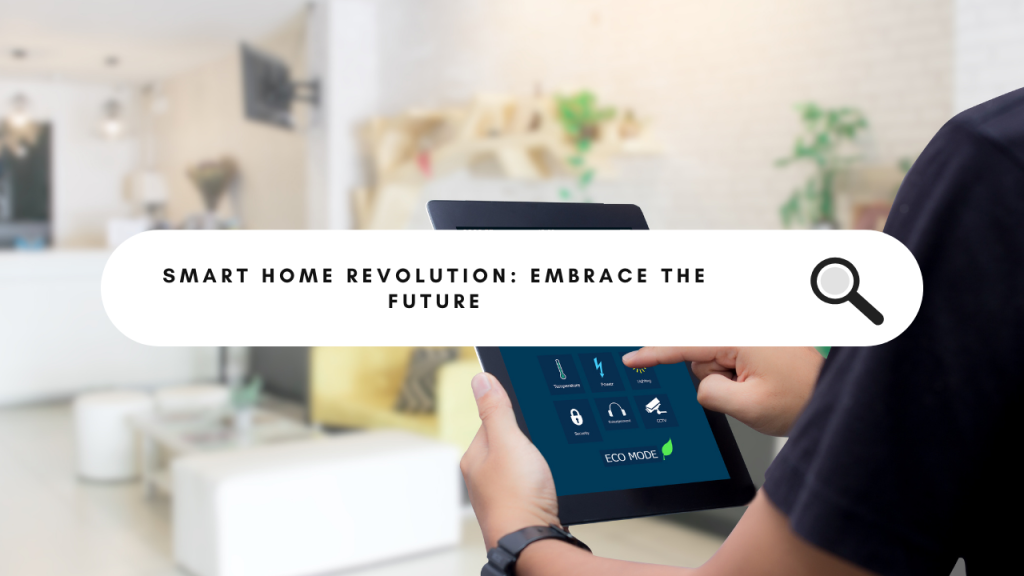In today’s fast-paced world, smart home technology has moved from a futuristic concept to an integral part of modern living. These innovations offer convenience, efficiency, and enhanced security, transforming how we interact with our homes. Here’s a comprehensive look at how smart home technology is reshaping our daily lives and what you need to know to make the most of it.
**1. Understanding Smart Home Technology:
Smart home technology involves integrating various devices and systems that can be controlled remotely via smartphones, tablets, or voice commands. These devices include smart thermostats, lighting systems, security cameras, and appliances that communicate with each other through a central hub or cloud-based system. The goal is to enhance comfort, improve energy efficiency, and increase security.
**2. Enhancing Convenience with Automation:
One of the most significant benefits of smart home technology is automation. Smart devices can be programmed to perform tasks automatically based on schedules or triggers. For example, you can set your smart thermostat to adjust the temperature before you arrive home, or program your lights to turn on and off at specific times. This level of automation not only adds convenience but also helps in managing daily routines more efficiently.
**3. Boosting Energy Efficiency:
Smart home technology plays a crucial role in improving energy efficiency. Smart thermostats, like those from Nest or Ecobee, learn your temperature preferences and adjust settings to optimize energy use. Smart lighting systems can automatically turn off when you leave a room or adjust brightness based on natural light. These technologies reduce energy consumption and lower utility bills while contributing to a more sustainable lifestyle.
**4. Improving Home Security:
Security is a top priority for smart home technology. Smart security systems offer real-time monitoring through cameras and motion sensors, allowing you to keep an eye on your property from anywhere. Doorbell cameras, like Ring or Nest Hello, provide video footage and two-way communication, so you can interact with visitors even when you’re not at home. Additionally, smart locks enable you to control access to your home remotely and grant temporary access to guests or service providers.
**5. Integrating Voice Control:
Voice-controlled assistants, such as Amazon’s Alexa, Google Assistant, and Apple’s Siri, have become central to the smart home experience. These platforms allow users to control various smart devices using voice commands, making interactions more intuitive and hands-free. You can ask your assistant to adjust the thermostat, play music, or provide weather updates, streamlining your daily tasks and enhancing convenience.
**6. Creating a Seamless Smart Home Ecosystem:
To fully benefit from smart home technology, it’s essential to create a cohesive ecosystem. Choose devices that are compatible with each other and can be controlled through a unified platform. Integration with smart hubs, like Samsung SmartThings or Google Home, ensures that all your devices work together seamlessly. This integration allows for more advanced automation scenarios and a more cohesive user experience.
**7. Addressing Privacy and Security Concerns:
As with any technology that collects and transmits data, privacy and security are important considerations. Ensure that your smart devices are secure by using strong, unique passwords and enabling two-factor authentication where available. Regularly update device firmware and be cautious about sharing personal information with third-party services. Understanding the privacy policies of your smart home devices can also help you make informed decisions about data security.
**8. The Future of Smart Homes:
The future of smart home technology promises even more innovation and integration. Advances in artificial intelligence (AI) and machine learning are expected to make smart devices more intuitive and responsive to user preferences. Emerging technologies like smart mirrors, advanced health monitoring, and fully automated home systems will continue to shape the way we live and interact with our homes.
In conclusion, smart home technology offers numerous benefits, from increased convenience and energy efficiency to enhanced security. By understanding and integrating these technologies into your daily life, you can create a more connected, efficient, and secure living environment. Embracing smart home innovations today ensures you’re well-prepared for the exciting advancements of tomorrow.

